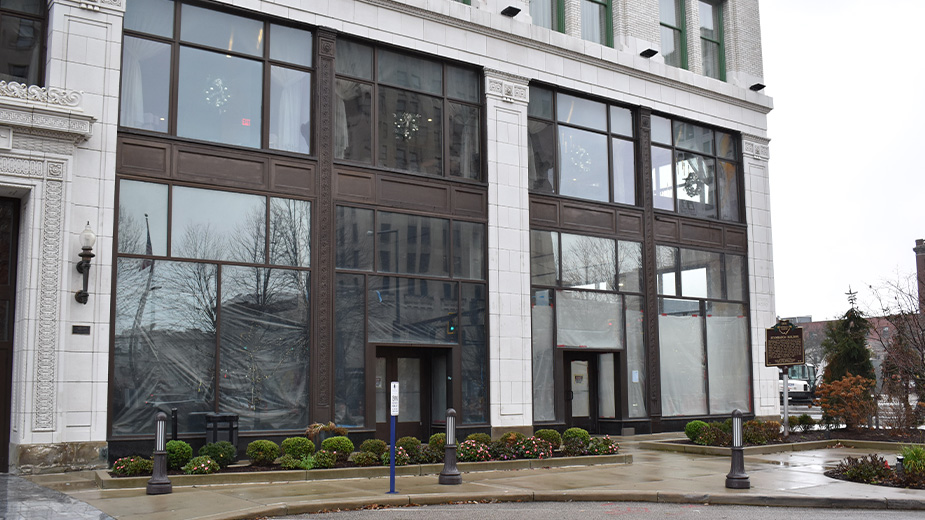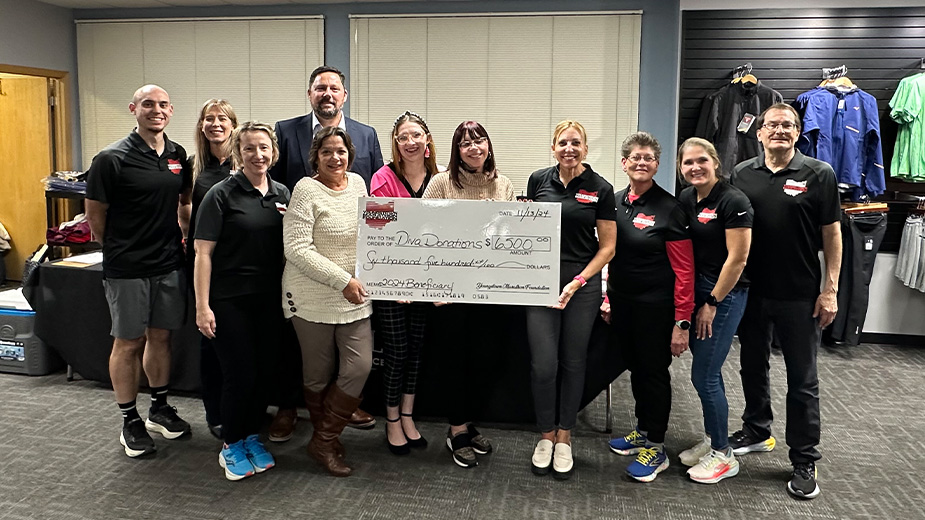Kiraly Shows How Small Shops Survive, Thrive
YOUNGSTOWN, Ohio –The industrial economy is in expansion mode. Even the smallest manufacturers in the Mahoning Valley are determined to maintain their competitive edges by acquiring new equipment and recruiting some of the best in the workforce to help their businesses grow.
“2015 will certainly be our best year to date,” says Steve Kiraly, president of Kiraly Tool & Die. “Each year that we’ve been in business, we’ve increased our sales anywhere from 5% to 10%.”
Kiraly Tool & Die manufactures stamping dies for several industries, and its president is a founding member of the Mahoning Valley Manufacturers Coalition. The coalition is an organized effort to re-brand the manufacturing sector and recruit a vibrant young workforce to its ranks.
“We’re always dealing with other manufacturers and always reinvesting in our company,” Kiraly says.
In 2012, the company launched an expansion that doubled the size of its plant on Crescent Street. Newer vertical machining centers, lathes and a more technologically advanced wire electrical discharge machining, or EDM, center are among the more recent additions seen on its floor. “Each year, we purchase on average one to two new computer-controlled machines,” Kiraly says. “Technology changes at such a rapid pace and to keep up, we’re constantly finding ourselves reinvesting in our company.”
Among the more recent upgrades is Kiraly Tool & Die’s new wire EDM machine, says Kiraly’s son, Kyle, company controller. “We received it at the end of last year,” he notes. The new wire EDM can cut intricate patterns into metal through an electrically charged wire.
Machinist Karl Smith says the EDM is capable of cutting to precision just about any geometrical pattern out of metal. “It will cut any material that will conduct electricity,” he says.
The wire is threaded through the machine and moves up and down, cutting a programmed pattern to tolerances of less than 0.0001 inch. “It can put serious finishes on things,” he says.
Sparks through the wire can reach temperatures as high as 27,000 degrees, which is cooled because the operation is submerged in water, Smith says. “We do all kinds of things,” he adds, reaching for a round gearlike part with small, angled teeth along its edge. “Any shape you can imagine, you can cut out of it,” he says. “There’s a lot that this can do that you can’t with conventional machining.”
The U.S. Department of Labor considers the tool and die maker, which employs 13, a small manufacturer, the younger Kiraly says. That doesn’t mean the company shies away from jobs for big industries and concerns. One of the most enjoyable aspects of the business, he notes, is that Kiraly can manufacture tools and machine various parts that are put to an interesting array of uses.
The company once manufactured foam cone caps at the request of the U.S. Department of Defense, for example, that were used as tip guards for missiles as they were transported to military installations. Another project the company is working on are small blocks used by Delphi Automotive to test electrical components that will be installed in vehicles. Other projects included machining components used to hold uranium rods in place at a nuclear power station.
“It’s a lot of fun when you get projects like these,” he says.
This year, the company is exploring investing in additive manufacturing, Steve Kiraly says. “It’s something we’re looking into very seriously this year, and we can already see the benefits and how that will pave the way for future machining.”
Initially, additive manufacturing, or 3-D printing, would be used for prototypes of various parts at the shop. “A lot of our customers come to us for prototypes first before they make the investment on production tooling for the products they’re going to mass produce,” he says.
A 3-D printer would greatly accelerate the turnaround time for manufacturing prototypes at the shop, Kiraly says, and expedite the customer’s production schedule. “To turn around a prototype or a series of prototypes for them in a very short amount of time is key in helping them launch their project faster.”
Manufacturing a steel or aluminum tool through 3-D printing is now out of reach of smaller manufacturers such as Kiraly, he says. “The technology is still advancing, but it’s advancing so rapidly that it changes from month to month. We’re optimistic in a few short years from now we’ll have that at our disposal as well.”
The company was among the founding members of the Mahoning Valley Manufacturer’s Coalition, a consortium of producers in the region who share a common goal: to encourage and train the next generation of machinists, engineers, fabricators and welders for manufacturing jobs in the 21st century.
A decade ago, getting manufacturers to exchange ideas was heresy. Today, the coalition has successfully contributed to revamping the curricula in trade schools and provided guidance to the education community about the skills manufacturers require today.
“Even though I might be the smallest manufacturer that’s part of the coalition, we all share the same issues,” he says. “We’re trying to collectively share our ideas and share our problems with one another when normally we wouldn’t share that information with one another.”
The abundance of manufacturers in the region provides a fertile training ground for prospective workers, Kiraly says. Those who are going through various programs in the area’s trade schools, for example, have an advantage in that most of these employers are in search of skilled tradesmen.
“We see the payoff in just three to five years after we hire them,” Kiraly says. “It’s getting the students involved, and getting the parents to realize that it’s a very lucrative career option for their kids.”
Kiraly says his company stands as a good example of how small manufacturing shops are embracing new sophisticated technologies that are more data and software driven, compared to the smokestack stigma of the old industrial economy.
“It’s never been more exciting to be in the machine trades than it is right now,” Kiraly says, “Just by seeing what technology has in store for you even in a few short years from now.”
Pictured: Kyle and Steve Kiraly, controller and owner of Kiraly Tool & Die respectively, say 2015 will be the small manufacturer’s best year ever.
Copyright 2024 The Business Journal, Youngstown, Ohio.



